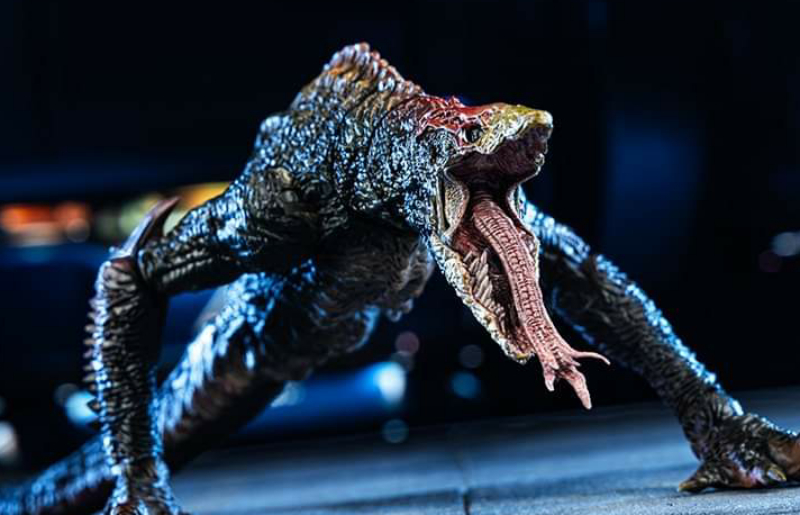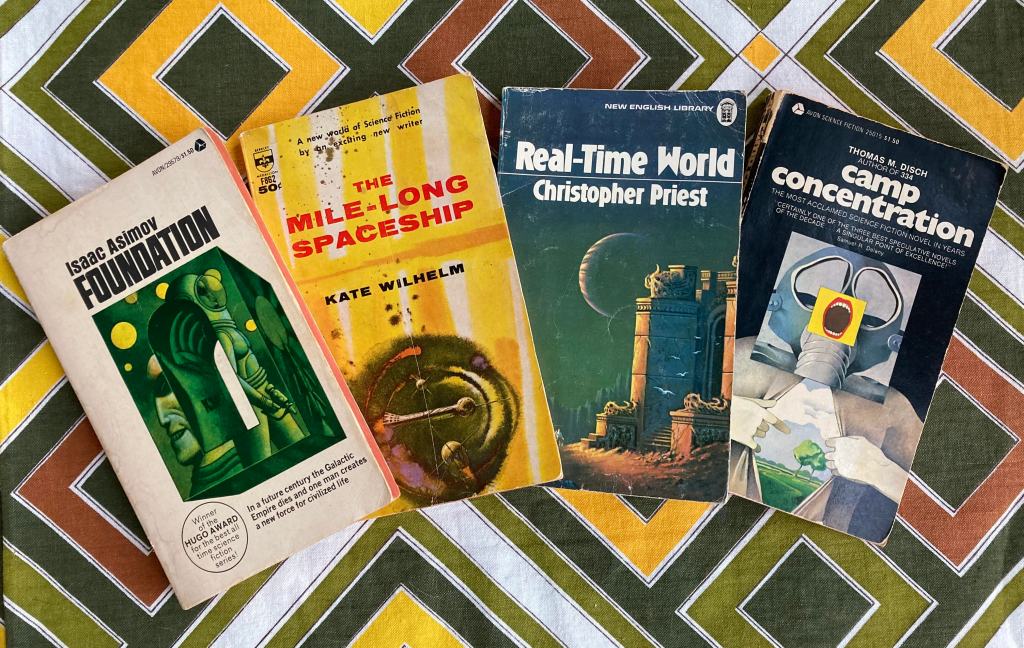In Shanghai Immortal I wanted to create a fantasy world that was fresh and cosy-nostalgic—the way Stars Hollows is for Gilmore Girls—but thoroughly irreverent and Asian. 1935 Shanghai as a setting was modern enough to be familiar, its glitz and glamour balanced by a dark underbelly of colonialism, racism, and mounting Japanese Imperial aggression, while being traditional enough to still have a firm grasp on the past. Much of Shanghai Immortal can be credited to Marie Kondo’s suggestion to only keep that which sparks joy.
This and That
Mixing demons and deities with contemporary settings isn’t new. Neil Gaiman’s American Gods has ancient gods battling for survival in modern-day America. In the Korean television drama Guardian: The Lonely and Great God, an immortal goblin falls in love in 21st century Seoul. There are ghosts, a bureaucracy of Grim Reapers, reincarnated lovers, and the Korean Goddess of Fate and Childbirth. Since cinema from Taiwan, Hong Kong and China portray deities and demons in a multiplicity of ways, in settings from antiquity to a futurist world, it was quite straightforward to do the same for 1935 Shanghai. Immortal characters which spoke most to me were ones who had human foibles, so I gathered characteristics from a lifetime of Chinese aunties and uncles and distributed them among my cast of characters. Hopefully readers also have in their lives a nagging auntie or prickly uncle who fusses and grumbles and yet unfailingly turns up whenever needed. I steeped (most) of my characters in the service love language common in East Asian communities because it’s not as prevalent in Western media and I wanted to see it more represented in fiction.
Incongruous Language
A huge influence on the formation of Shanghai Immortal’s world is Tamsyn Muir’s wonderful Locked Tomb series, and in particular its contemporary sensibilities and humour. I so enjoyed the contrast between Harrow’s voice in the series—a rather affected Victorian manner, and Gideon’s—informal, contemporary, and peppered with casual profanities, that I recreated a semblance of that incongruity in the honorific language Lady Jing so despises (spoken by just about everyone in immortal Shanghai) and Lady Jing’s propensity for vulgarities. The courtly speech as I call it in the book is based on direct Mandarin translations of honorific Chinese. For example, the courteous way to say please don’t harm me is 高擡貴手 (gao tai gui shou) which translates directly to “Lift high your noble hand.” Rather poetic, don’t you think?
Farts and Eggs
While I find honorific language quite beautiful, I do love a juicy profanity. They are infinitely versatile, donning and slipping off word classes like a silk robe, taking the stage as verb, noun, adjective, adverb, interjection, even pronoun. They are also excellent tools for worldbuilding, humour, giving insight into character, as well as adding backstory.
A few favourites: “Christ that was” from Kate Dylan’s Mindwalker reflects the story’s post-religion cyberpunk dystopia while Saara El-Arifi’s “Maiden’s tits” from The Final Strife gives a cheeky nod to the sapphic vibes. “Jesus H Roosevelt Christ” from Diana Gabaldon’s Outlander anchors the time traveling protagonist to World War II while also reinforcing her otherness in 17th Century Scotland.
Creating the Mandarin curses for use in Shanghai Immortal was extremely entertaining. Research inevitably triggered fits of giggles. The first thing I found were farts. Dog fart, clogged dog fart, fart, fart talk, and more. Mostly different takes on our ubiquitous bullshit, but direct translation didn’t quite capture the feeling of their Mandarin counterpart and felt too archaic. So I experimented with pairings until I found one that gave me that Marie Kondo spark. Et voila, piss-fart was born.
The humble egg was another word that came up a lot and with more variation in meaning: stupid egg (fool), egg of a turtle (SOB), bad egg (villain), naughty egg (rascal), turd egg (douchebag), rolling egg (get lost). I am quite enamoured with the word turd—every time I see it my mind supplies the emoji of the grinning, wide-eyed, cupcake worthy spiral of poop. Which is how turd-egg was born. Thanks to my time in England I’m also a fan of rotter and its variation rotted, and so rotted-egg became a useful alternate.
Whose Authenticity?
Authenticity is a loaded term. It can mean comparable to the original. It can also mean true to one’s own beliefs, spirit, or character. When it comes to diaspora authors drawing on their cultural heritage, authenticity becomes a complex, sometimes weaponised term. I remember teenaged me not knowing better and finding Amy Tan’s depiction of the Chinese women in Joy Luck Club stereotypical. Back then, I didn’t understand that lived experiences (with added intersectional perspectives from different generations) are unique to each of us. Tan’s work drew on her and her mother’s lives. Her story was authentic to her experiences, and she refused to take on the mantle of representing the whole of Chinese culture because she knew, quite rightly, that it was impossible. No one writer can represent the whole.
Culture, like language, is a living evolving thing. Diaspora communities create new iterations of cultural mores. Travel, emigration, immigration, and popular culture create a loop of mutual influence and continuous change between ancestral and new world homes. Disconnected diaspora—those who don’t have access to their heritage language, ancestral holidays, or heritage cuisine home-cooking—also create their own iterations of cultural mores which are no less and no more authentic than other diaspora. After all, the very nature of authenticity is subjective.
There is no single mirror for authentic Chinese characters. There is no monolith. Imagine instead thousands of mirrors formed into one giant disco ball, reflecting and refracting a myriad of stories and representation. My story is an irreverent mash-up of all those things that bring me joy: Classic Hong Kong cinema, tropes from Korean and Chinese dramas, Canadian humour, creative cursing, favourite Taiwanese street-food, fun cocktails. And one foul-mouthed half-deity who is very fond of saying piss-fart.

Alice (A.Y. Chao) is a Chinese-Canadian author of fantasy. She is fascinated by the interplay between self-perceived versus imposed identity and how this intersects with belonging, and enjoys exploring these spaces in her stories. A recovering lawyer and a xiaolongbao enthusiast, she lives in London. She is grateful for the support of the Canada Council for the Arts.
Find her online at aychao.com.







